Impassioned plea to protect the unborn
People
With State Parliament deferring debate on the Pregnancy Termination Bill until February 16, this Saturday's Walk for Life rally in Pennington Gardens on Saturday at 10am is expected to send a strong message to Lower House MPs about protecting the unborn. The address given by Bishop Greg O'Kelly SJ at last year's rally is provided below.
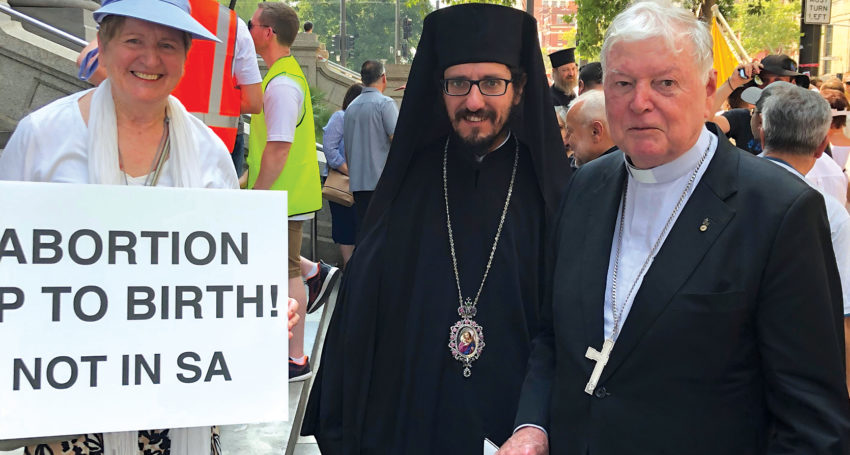
In speaking of the sacredness of life, my religious tradition draws upon the great traditions of the Jewish people: ‘In your sight the whole world is like a grain of sand, like a drop of morning dew falling on the ground….Yes You love all that exists, You hold nothing of what You have made in abhorrence, for had You hated anything You would not have formed it. And how, had You not willed it, could a thing persist, how be conserved if not called forth by You? You spare all things because all things are Yours, Lord Lover of Life.’ (Book of Wisdom 11:22-26)
Advertisement
And what is more precious to the Lord of Life than a human being, created in the image and likeness of God? The Prophet Jeremiah spoke the words of the Lord, ’before I formed you in the womb I knew you. Before you came to birth I consecrated you.’ That is our outlook on life, one of reverence and sacredness for God-given life. An outlook of tenderness and awe.
This attitude cannot cope with a law that would make it possible for abortions right up to the ninth month, the killing of a human being about to be born, through an operation that is horrendous in its method. It has been shown that a foetus will react to pain at the age of 20 weeks. How can health professionals bring themselves to do such things?
I am told there is an average of 12 abortions a day in South Australia. My plea would be that as a society we should do much more to help the women who are facing or have faced such a terrible decision. There is no room at all for harassment or confrontation, but rather compassion and care. The response of our society should be to reflect the gentleness of Christ, the way He treated the Samaritan woman condemned by her own village. He spoke to her at length without spite or rejection, and she was the one chosen before all others to whom He confessed that He was the Messiah.
It would be normal for women seeking an abortion to be afflicted by the terrible decision they are making, one that defies their nature. Women have told me that in being pregnant their whole body and psyche becomes geared towards nurture, not destruction. While the act is dreadful and wrong, charity and sensitivity and awareness of suffering must shape the style of our response to those who find themselves approaching this decision. ‘I have come that you might have life, and have it to the full,’ Christ said. Life is a gift God gives forever. It is not for a human being to take it away.
There are organisations around Australia and overseas that are set up to help and be with women who need such care, groups such as Walking in Love and Rachel’s Vineyard. “A voice was heard in Ramah, sobbing and wailing. Rachel weeping for her children and she would not be consoled because they were no more.’ (Matthew 2:18) The ache of the missing child, I am told, does not go away.
Advertisement
We believe that an unborn child is of equal value to one safely delivered. We are in a society which rightly spends so much effort on creating child safe environments, that does so much to protect children in their vulnerability and dependence. Child protection programs and protocols, and child safety measures are rightly so much part of our consciousness these days, and yet there are some who suppress that awareness when it comes to the unborn.
A truth we must acknowledge is that so often the woman facing a decision to abort has been subject to coercion, and is really not making a free decision by herself. There is often the partner, or the lover, the prospective father, and sometimes the family of the young woman alarmed at the impact an unplanned pregnancy will have on the future of their young daughter. These pressures take away freedom, so much more could be done to help women in this situation make the right decision.
Our central view is that life is to be treasured, seen as sacred, from conception to natural death. All of life is sacred. This is a holistic approach and opposes not only abortion but euthanasia, capital punishment and the debilitating effects of poverty on human development. The gift of life is to be lived to the full. How can medical professionals act so decisively against the sacredness of life, and how can politicians vote to deny that life is sacred, and do they not know they have no authority to kill the innocent.
There is talk of choice, but in the abortion situation there is no choice for the child; the child has no voice, no say in what is to happen, no defence that it can make. It is the vocation of politicians in any society to defend the weak and the poor, and who is more defenceless than an unborn child. It is true that a woman has rights over her body, but not over somebody else’s body, the child within her. We do not solve a social problem by inflicting death. We should look at the causes and do what we can to help those forced to make such decisions. We should be with them, in kindness and gentleness and help. We should be allowed as a right to pray for them in public.
Our horror, and I use that word deliberately, should be directed not at the women facing such decisions, but at those who perpetrate the acts. For medical professionals abortion is also an act of self-violence as it goes against everything that a medical professional should stand for, the nurturing and the care for life. It reverses totally the calling of the doctor or nurses to be instruments of healing, not agents of deliberate death. Our horror must also be addressed towards the politicians who will enact legislation that will permit the killing of the unborn.
We must challenge those who seek to soften our conscience by changing our language and referring to abortion using softer terms, using language that disguises the truth, dishonest language. It is called a termination, but it is a direct intervention to destroy. Abortion is being described as ‘a medical procedure’, or an act for ‘women’s reproductive health’. It ignores the fact that it is the deliberate taking away of a human life. This act is sometimes described as simply a medical procedure, as if it had no moral consequence. It has the utmost moral significance. Is there anything more serious or raises greater moral issues than the taking of life?
There are two outlooks in this debate. There are those who support love and life, and those who opt for death and killing. May wisdom, compassion, and a respect for sacredness of life, and our need in justice to protect the utterly vulnerable and the utterly defenceless be a fruit of this debate. “Before I formed you in the womb I knew you. Before you came to birth I consecrated you”.


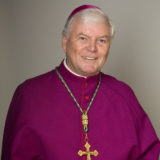
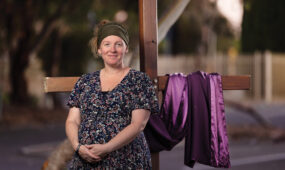
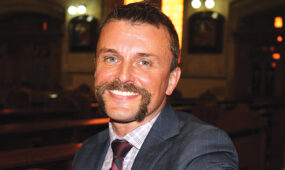
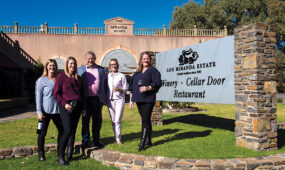
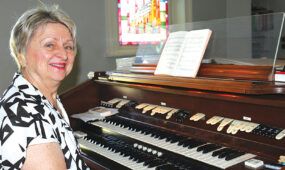

Comments
Show comments Hide comments